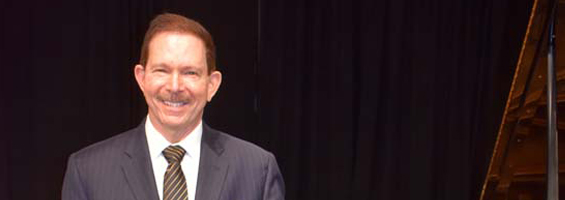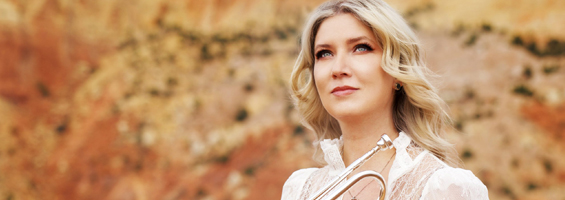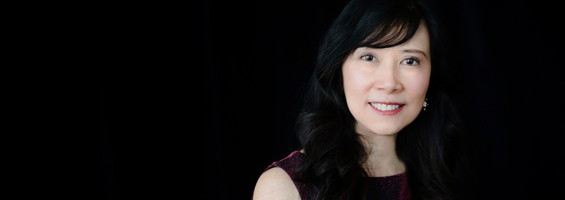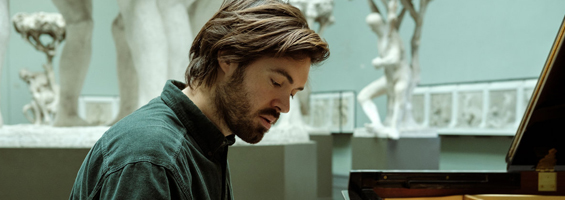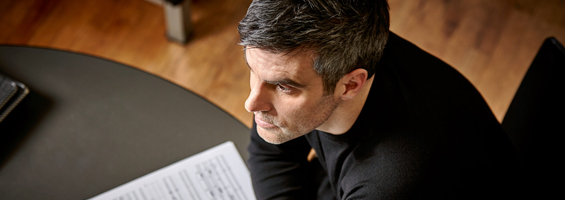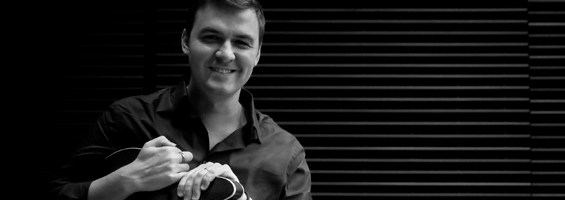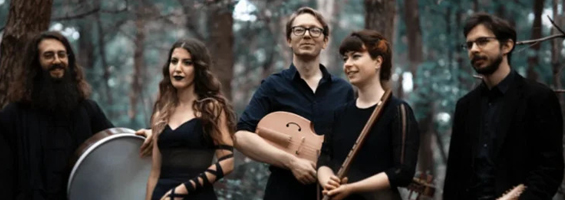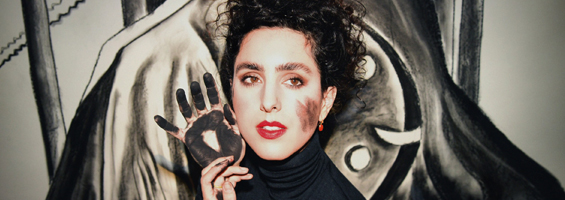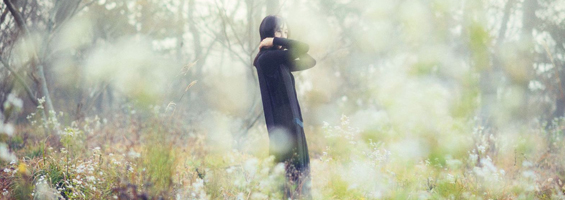
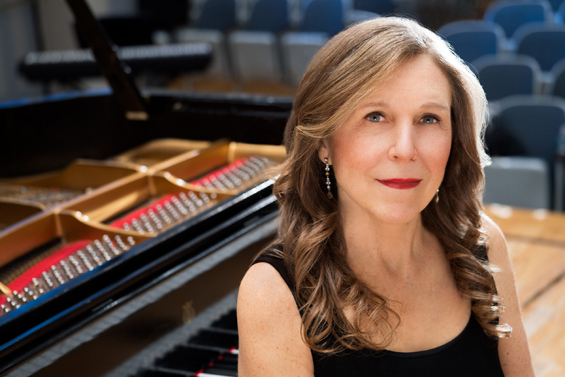
photo: J Henry Fair
2024 ARTIST PICKS
Every December textura asks artists whose releases were selected for that year's roundup (here) to highlight a work, musical, literary, or otherwise, that helped sustain them during the year. Herewith are their picks for your reading pleasure and edification. textura is immensely grateful to those who, at this especially busy time of the year, contributed to the article and thanks them for their generosity.
Esther Abrami • Mark Adamo • James Adler • Rudy Adrian • Jamie Baum • Nat Bartsch • Mary Elizabeth Bowden • Geof Bradfield • Carolyn Enger • Alice Ping Yee Ho • Sharon Isbin • Sarah Jerrom • Clare Longendyke • Deborah Martin • Kjetil Mulelid • Mavis Pan • Rachel Lee Priday • Kevin Puts • Kenny Reichert • Sibil•la Ensemble • Alex Sopp • Spina & Benignetti Piano Duo • Itoko Toma
Esther Abrami (#11 Classical [Instrumental: Quartet / Ensemble / Orchestra]: Cinéma, Sony Classical)
Les Yeux Noirs' A Band of Gypsies (1992) has been my cheer-up and good-mood motivation this year! It's an incredible Klezmer band. I love this type of music, the freedom of the tempi, the glissandi of the violins, and the soul it has is incredible!
Mark Adamo (#2: Classical [Vocal], with John Corigliano: The Lord of Cries, Pentatone)
It's not so much the quality of the writing but the story it tells: Daniel Kessler's biography of the American opera director and conductor Sarah Caldwell, Music's Wonder Woman, tells the story of an incredible figure—as abusive as she was inspiring, as haunted as she was fearless, this was a woman—a character—epic in her gifts, her needs, her kindness, and her flaws. Extraordinary in her work, she was nonetheless haunted, as we all are, by the demons in her past. A true story; a compelling read.
James Adler (#15 Classical [Instrumental: Solo / Duet / Trio]: Reflections, Albany Records)
Many artists and productions have provided me inspiration this year. Too many to choose from, frankly—from concerts, operas, and Broadway musicals. I found The Hours at The Metropolitan Opera to be an exciting new opera about three women in different places and at different times. Seeing and hearing three amazing musical stars onstage—Kelli O'Hara, Joyce DiDonato, and Renée Fleming—was emotionally connective. The opera dealt with a character in the last stages of his fight with AIDS in such a sensitive and compelling way. The three women and a marvelous supporting cast were strong and commanding.
But ... I also have to give a shout-out to the brand-new production of Gypsy, back on the Broadway stage. Over the years, I've seen about seven productions of this show (even conducted parts of it back in my young Chicago days), but I have never seen and heard a production of this magnitude—Audra McDonald is Mama Rose. At the recent performance Scott and I saw, members of the audience were sobbing out loud at the emotional intensity of Rose/Audra, commanding the stage and singing “Everything's Coming Up Roses.” Which, of course, plot-wise, it was not! Inspirational, raw emotions on stage and in the audience were felt. Ex aequo, The Hours and Gypsy for inspiration in 2024.
Rudy Adrian (#8 Ambient / Alternative: Reflections on a Moonlit Lake, Spotted Peccary Music)
A 2018 memoir, The Salt Path by Raynor Winn. I only became aware of this book after seeing the excellent film adaptation starring Gillian Anderson.The story describes how Winn and her husband lost everything through an investment gone wrong. At the same time Winn's husband was diagnosed as terminally ill. Homeless and penniless, they set out with a cheap tent and sleeping bags to walk a 650-mile coastal path along southern Britain. By the end of their trek, Winn's husband's health was much improved and she wrote a book about their hike, which became a best seller. She is now a successful author and her husband is still alive and joining her on hikes. But of course they'd have never ended up like this if they hadn't been reduced to poverty—every cloud has a silver lining!
Nat Bartsch (#16 Jazz: Forever Changed, Amica Records)
Jon Hopkins' Ritual: My first encounter with Jon's music was listening to Music for Psychedelic Therapy in my mastering engineer's Atmos studio. It was a profoundly moving experience, the first time that I'd heard a record that seemed truly designed for this format, for immersive, deep listening .I was blown away once again when he released Ritual this year; in particular, I love how through-composed this record is. I love the way the music slowly evolves, from one track to another without gaps, with rich layers of synths, ambient effects, and voice. It is soothing, kind, and beautifully constructed; I can soak in this music for hours. It's a record that also serves as a reminder of the importance of the album as a format. This is not music for playlisting, this is music that asks the listener to be more intentional, patient, and committed to his (amazing) music.
Jamie Baum (#14 Jazz: What Times Are These, Sunnyside Records)
It's always difficult to narrow down my inspirations to just one CD, musician, artwork, etc. It really depends on the day or what I might be going through or working on, so my answer today most likely would be different than last week. What's on my mind right now, like millions of people, is the passing of the great musician and tabla master Usted Zakir Hussain. I've been a huge fan of South Asian music and of his for many years and, like many, am heart-broken by his passing. Since the news broke I have gone back to listen to recordings and have been watching countless videos and tributes that have been posted on social media. Despite the great sadness I feel, I am reminded and incredibly inspired when watching these videos by a multitude of gifts that include not just his incomparable mastery of the tabla but his joy, heart, compassion, generosity of spirit, openness, and unwavering quest for knowledge, growth, and connection. There are too many recordings and videos to list, and there are so many available on YouTube, but a couple that illustrate some of these things for anyone who is unfamiliar with him include the Shakti Tiny Desk concert and a video featuring him performing with his father Usted Alla Rakha.
Mary Elizabeth Bowden (#14 Classical [Instrumental: Quartet / Ensemble / Orchestra], Storyteller, Cedille)
My favourite listening experience this year has to be Willow Smith's album Empathogen. It's such an incredible blend of pop-punk, grunge, and emo, and the way it tackles big themes like anxiety, love, fear, pain, and existence is so powerful and raw. Every song feels like it's full of emotion and meaning, and it really draws you in. Over the summer, I listened to it nonstop during my daily runs—it became my soundtrack and kept me going, both physically and emotionally. There's something about the energy and depth of this album that makes it hard to describe. It's not just music; it's an experience you really need to hear to understand.
Geof Bradfield (#18 Jazz: Colossal Abundance, Calligram Records)
Despite the continued (and not entirely inaccurate) pronouncements of the end days of the music industry, it seems that artists haven't slowed their output in the least. There are so many great records coming out all the time that my personal listening list is woefully backlogged. Given that, when I keep returning to a record it means it made a deep impression. South African pianist Nduduzo Makhathini's uNomkhubulwane (Blue Note) has been on heavy rotation in my home and car for the past several months. His synthesis of Abdullah Ibrahim, the John Coltrane Quartet, Randy Weston, and other influences is intellectually sophisticated and exquisitely executed but also imbued with a sense of mystery that hits me on a deep, raw emotional level as very few contemporary records do.
Carolyn Enger (#19 Classical [Instrumental: Solo / Duet / Trio]: Resonating Earth, Métier)
One theatre experience has stood out for me during this past year, Here There Are Blueberries, which tells the story of a photo album that was donated to the United States Holocaust Memorial Museum containing never-before-seen photographic evidence of Nazi officers and staff at the Auschwitz-Birkenau concentration camp. One of the lines in the play stands out for me, "Sometimes when people look at Auschwitz, they focus on the killing and forget that the killing is the result of a long process. No genocide starts with the killing. Every genocide starts with words.” In order to create an ethical society, we all have to be aware that we're one of these three things, culpable, complicit, or an onlooker, and that as such, we have responsibilities. The events depicted in the play are true and the dialogue is based on interviews with the people involved as well as historical research carried out by artists from the Tectonic Theatre Project. With my own experience as a child of a survivor, I try to weave social justice themes into my programming. This particular treatment of this vast topic was especially well done. I was very impressed with how the construction of the play was woven around a single artifact and the research that ensued. As artists, I feel we have a responsibility to use our voices to heighten awareness for our audiences and to raise questions and stimulate inquiry.
Alice Ping Yee Ho (#13 Classical [Vocal]: Chinatown, Leaf Music)
The upcoming release of Phoenix Rising (March 2025) by Leaf Music, a collection of Chinese orchestral music featuring violin soloist Angel Wang, promises to be a gem within its genre. As a Chinese Canadian composer who grew up immersed in The Butterfly Lovers' Concerto—the most celebrated Romantic violin concerto from the Chinese repertoire—it feels almost surreal to now have been commissioned to compose Phoenix Rising, a violin concerto paired with this iconic classic on a single album. Angel Wang, the brilliant soloist, brings both works to life with profound emotion and poetic virtuosity. Her background embodies themes of auspiciousness and harmony, perfectly aligning with the Romantic essence of these pieces. While The Butterfly Lovers' Concerto conveys a poignant tragic love story, Phoenix Rising explores the theme of rebirth, drawing on traditional myths to symbolize resilience, strength, and the pursuit of happiness.
In addition to these two concertos, the album features reimagined Chinese folk pieces that blend traditional melodies with Western orchestration. Highlights range from dazzling showpieces like Galloping Horses to lyrical gems such as Jasmine Flower and Dance of the Yao People. These works, masterfully arranged by conductor Claudio Vena, reflect a diverse stylistic palette—some paying homage to Rossini's vibrant, thundering energy while others evoke the elegance and lyricism of Puccini's arias. Angel Wang's flawless technique and her seamless integration of Western and Eastern styles breathe new life into each piece, creating a listening experience that is both surprising and captivating. With its universal appeal, this album invites listeners to explore melodies as resonant as Celtic folk tunes yet infused with distinctly Chinese elements. Phoenix Rising is a testament to the power of music to transcend cultural boundaries, offering something truly timeless for audiences everywhere.
Sharon Isbin (#2: Jazz: Live in Aspen, with Amjad Ali Khan and Amaan and Ayaan Ali Bangash, ZOHO Music)
Given the explosion of antisemitism that has engulfed the world following the horrific massacre of innocent Israeli citizens last year by Gazans in the worst assault on Jews since the Holocaust, I turned to watch the brilliant 2022 PBS series The U.S. and the Holocaust by Ken Burns. How could people, then and now, so readily twist fact into fiction to glorify genocidal violence against Jews? How could voters and politicians in this country support an incoming administration whose reverence for fascism and hatred of democracy, truth, and the rule of law be so reminiscent of 1930s Germany? Have we learned nothing from history?
The powerful Ken Burns documentary provides a damning indictment of governmental and popular inaction, callousness, ignorance, apathy, and obstruction. Stream it on PBS or other providers of your choice. A worthy companion film is the truly extraordinary German remake, All Quiet on the Western Front (2022), which brilliantly forecasts the inevitable goose-step march from WW1. Antisemitism, like misogyny and racism, is an ever-present cancer that constantly metastasizes into abhorrent new dimensions of brutality and destruction. Learning from our past might be humanity's only hope for survival.
Sarah Jerrom (#4: Jazz: Magpie, TPR Records)
Wheeler With Words, Norma Winstone's latest release with The North ensemble, features her newly crafted lyrics set to some of Kenny Wheeler's most cherished music as a retrospective. The retitled songs in the track listing add delightful layers of surprise to the first listening experience. I first listened to this album during a commute and was so enraptured that I completely missed my highway exit. I was moved and transported by the emotionally poignant text, Norma Winstone's vocal delivery—masterful in its subtlety, improvisational freedom, and vulnerable undertones—and the beautiful performances by each of the ensemble members. For me, this is an album that will be on repeat for years to come.
Clare Longendyke (#16: Classical [Instrumental: Solo / Duet / Trio]: ...of dreams unveiled, Clare Longendyke)
It had been decidedly too long since I have allowed myself to get truly lost in a piece of music, and Beach's epic thirty-minute variation set from 1904, Variations on Balkan Themes, was the perfect antidote to this drought. Though I first learned about it during my studies, it was a delight to explore it afresh from the keyboard, to tease apart Beach's possible process as she found the most creative ways possible to present and then re-present the Balkan folk themes that so inspired her, all while enjoying Joanne Polk's 2008 recording of the piece. I always love a work of music that challenges the performer to synthesize styles of the past without forsaking the inimitable voice of the work's creator, in this case, Beach. The variations have proven to be at once the most challenging and most rewarding piece of music I have ever dared to interpret.
Deborah Martin (#1: Ambient / Alternative, with Erik Wøllo: Kinishba, Spotted Peccary)
There are many wonderful albums, books, and films that have inspired me or led me down a path of creative discovery. Most everything I encounter in everyday surroundings or travels provides inspiration in varied forms. Imagining what it would be like to exist in a different time era, a different world, these are all things I think about often, leading to many paths of creative choice. Hard to choose over the numerous works that have given me creative pause over the past year or two.
Listening to Gustav Holst's The Planets, I dive deeply into the compositions as they are mysterious and evocative, compelling and powerful. The film The English Patient I have watched many times; for me it is a study of human behaviours and emotions during unstable times and an enduring legacy of emotive expression. A beautiful film.
I have a deep abiding respect of indigenous peoples, having spent many years of intense study and on-site research at various locations throughout the American Southwest. Earlier this year I discovered a series of books by W. Michael Gear and Kathleen O'Neal Gear. Both archaeologists and writers, they have written a complete series of novels spanning North American prehistory from around 13,000 B.C. through 1,400 A.D. They are fascinating accounts of diversity among American Indian cultures.
Kjetil Mulelid (#23 Jazz: Agoja, Odin Records)
Right now, my favourite piece of music is Jason Moran's The Sound Will Tell You. It's an extraordinary work of art—if you're in the mood for some compelling piano music, this album is a must-listen. I also discovered Cy Twombly's work this year, and his catalog is absolutely captivating. The depth and intensity of his pieces are truly mesmerizing. If you're into Norwegian or Scandinavian music, be sure to check out my new album with Wako, Evig liv, perfekt orden, alongside my Agoja album!
Mavis Pan (#8 Jazz: Rising, Mavis Pan)
An album that is special to me in 2024 is Karrin Allyison's latest album A Kiss for Brazil. I discovered it while I was searching for some Brazilian songs to perform this summer as I'm a deep lover of Brazilian music. Miraculously, after listening to this album regularly for a week, I bumped into Karrin at Ted Nash's show at the Dizzy Jazz Club. I introduced myself to her and expressed my appreciation of her artistry and also handed her my new CD. She bought me a drink in return and we have become musical friends since then. What a divine connection and a gift from heaven, I said to myself! Karrin's soulful singing has lifted my spirit during an emotionally trying time, and the upbeat samba groove reminds me to just keep singing and dancing and life will work itself out.
Rachel Lee Priday (#2: Classical [Instrumental: Solo / Duet / Trio]: Fluid Dynamics, Orchid Classics)
2024 marked the 100th anniversary of Gabriella Fauré's death, and his Second Piano Quartet has become a surprise favourite of mine. Composed in 1885-86, it is elegiac, ecstatic, and ethereal. I think of Fauré as a sort of gentle giant, whose "intensity on a background of calm," as Aaron Copland described it, has remained in my psyche this latter half of 2024 as we descend into winter.
Kevin Puts (#1 Classical [Vocal]: The Hours, Warner Classics)
An album I found myself returning in 2024 is John Eliot Gardiner's Bach: Cantatas BWV 82 "Ich habe genug” & 83 "Erfreute Zeit in neuem Bunde" (with The Monteverdi Choir and The English Baroque Soloists). One can spend a lifetime obsessing over Bach's music, but as I strive for a greater balance between harmony and counterpoint in my own writing, I am learning from it (and astounded by it) in a more practical way than ever before.
Kenny Reichert (#7 Jazz: Switch, Calligram Records)
One of the musical gems I discovered in 2024 is the album Over Tage by Danish duo Svaneborg Kardyb. Their unique blend of Wurlitzer/keyboard and drums/percussion creates minimalist electronic soundscapes that are immersive and melodic. The album weaves together captivating atmospheres and grooves, achieving a harmony of understated beauty and rich sonic layers. Music is most powerful for me when it stirs something deep and visceral—when it transports me out of my day-to-day life. Over Tage envelops me in its dreamy aura and evokes vivid memories of my time living in Berlin. It was my soundtrack for introspection, connection, and escape, all wrapped into one.
Sibil•la Ensemble (#17 Classical [Vocal]: Viriditas, TRPTK)
Our album Viriditas was deeply inspired by the life and work of Hildegard von Bingen (1098–1179), a German Benedictine abbess, poet, scientist, visual artist, and writer. The vision for Viriditas emerged from Hildegard's decade-long work Scivias (1152), a trilogy that records and interprets eighteen of her visions, including illustrations and a number of musical compositions. Although written centuries ago, we chose to highlight this work as our 2024 favourite because it offers an innovative perspective on life, nature, and the divine—one that has the potential to gradually reemerge in our modern lifestyles. Her cosmotheory amplifies a holistic perception of life, emphasizing the interconnectedness of everything.
Three central allegories in her writings—Sapientia, Karitas, and Viriditas—caught our attention and also shaped the structure and repertoire of our album. Sapientia is the female virtue of Wisdom, God's great ornament and coworker in creation, that counsels in the formation of all the creatures made in heaven and earth. She loves, protects, and guides them to the end of time. Karitas, the allegory of Divine Love, refers to the love that flows in the triune God and co-incarnates in every form of life, enabling humans to participate in God's maternal love. Karitas also mentions the love for ourselves, the love for our neighbour, and our joy coming from sharing their joy. Viriditas literally means Greenness and symbolizes nature and the principle of life. According to Hildegard, the elements of nature reflect the power of God, and we can receive profound Wisdom from them and experience the ecstatic state of creation by our three parts: the soul, the body, and the senses. The study of nature is an exploration of divine mysteries, and the natural world becomes a sacred realm that humans can experience.
Reading Hildegard's writings, researching and performing her music has been a transformative journey for us. Her work inspires reverence for the multifaceted dimensions of human and non-human existence on our planet and simultaneously bridges the art and thought of her era with the present.
Alex Sopp (#5: Ambient / Alternative: The Hem & The Haw, Sono Luminus / New Amsterdam)
I would love to share two books that both scrambled me up real good and inspired me to make my own rules for my own make-believe worlds.
First, we have Samantha Hunt's debut novel The Seas from 2004. This book magically found its way into my hands at a book shop, and from the first line I was hooked. The sentences are choppy and fast—just how I like them—and they wash over you in waves of playfully devastating confusion. Hunt brilliantly spins the voice of the narrator, and the reader is left unsure about what is reality and what is delusion. It's blurry and beautiful. I just love this book and found it so moving, but also, did I even read it or did I dream it? Once you read it, you'll know what I mean.
The second is a collection of short stories from 2023 by Kelly Link titled White Cat, Black Dog. What strikes me so much about Link is her ability to invent a completely magical universe and then constantly change the rules—and then, as the reader, you never once question it. I'm so obsessed with this! As artists, we can make whatever we want, right? (So why don't we!?) These truly unhinged, hilarious, and disturbing fairytales inspire me to keep painting my own make-believe world. But they also inspire me to then take that world, turn it upside down, and shake it like a snow globe.

photo: Spina & Benignetti Piano Duo
Spina & Benignetti Piano Duo (#10: Classical [Instrumental: Solo / Duet / Trio]: Transcriptions for Piano 4-Hands: Ravel, Wagner & Liszt, Piano Classics)
A musical encounter that redefined 2024 for us: in 2024, we were fortunate to reconnect with our former professor, Igor Roma, during a recital in Italy. It had been five years since we last saw him at our final exam at the Maastricht Conservatorium, and the intervening years—filled with packed schedules and the disruption of the pandemic—had made such a reunion challenging. This meeting proved to be a turning point for us, both personally and artistically.
On a personal level, his advice and insights were a vital source of renewed energy and perspective. Artistically, Igor Roma has long been one of our favorite pianists. His legendary live recording of Liszt's Totentanz at the 1996 Liszt Competition, where he won, remains a touchstone of virtuosity and musicality for us—a piece we return to almost as a mantra.
This year, however, we discovered another gem in his discography: the 2006 Romantic Pieces for Piano album (Challenge Records), featuring works by Alkan, Liszt, and Prokofiev. The Alkan recordings, in particular, left us speechless. Roma's clarity, attention to detail, and the way he pairs breathtaking virtuosity with delicate sensitivity is nothing short of stunning. This album brings us back to the pure essence of pianism—the artist in dialogue with the composer, shouldering the profound responsibility of interpreting the music authentically.
In a world where the focus can sometimes shift to fleeting social media recognition, this recording reminds us of the true purpose of artistry: to express the inexpressible, to convey through music what words cannot capture. Igor Roma's playing inspires us to remain faithful to this ideal, and we highly recommend this overlooked masterpiece to anyone seeking to reconnect with the soul of classical piano music.
Itoko Toma (#6 Ambient / Alternative: Beyond the Mountain, Schole)
Shin Kikuchi's images in the artbook-music release ReBorn: ReBirth (2023), created by synfilums (Kikuchi and Itoko Toma). The collection shows nature as both familiar and extraordinary, and shows nature's strength and fragility (Hakanasa). It also captures the beauty of the way time moves forward without retaining the same form. When I look at the images, music wells up inside me and makes me want to play a piano that sounds like falling petals and draw melodies like the ridges of mountains.December 2024![]()


